GGC Directory
GREEN GROUNDS DIRECTORY
Meet the schools and institutions pioneering the transition to organic land care. These campuses have committed to reducing and/or eliminating synthetic pesticides and fertilizers on their campus grounds, earning them the Green Grounds Certification. Green Grounds Certified Campuses are creating campus environments that not only promote the well-being of their community but also exemplify a profound commitment to environmental health. These institutions are nurturing biodiversity and actively confronting the challenges of climate change by creating climate resilient spaces. You can find the standards for the Certification here. Ready to join the movement? Apply for the Green Grounds Certification here. If you have questions or would like to connect with any of the certified schools, please email us at campus@rewild.org.

Schools
Platinum Campuses
Seattle University
Point of contact: Shannon Britton, Assistant Director Grounds and Waste Management
Percent of campus managed without synthetic pesticides and fertilizers: 100%
Level of certification: Platinum
What impresses us: The entire campus has been fully organic and synthetic pesticide and herbicide free since 1986.
Plan for improvement: Seattle University plans on exploring organic fertilizer options for sports fields which occasionally require a synthetic fertilizer in cool seasons.
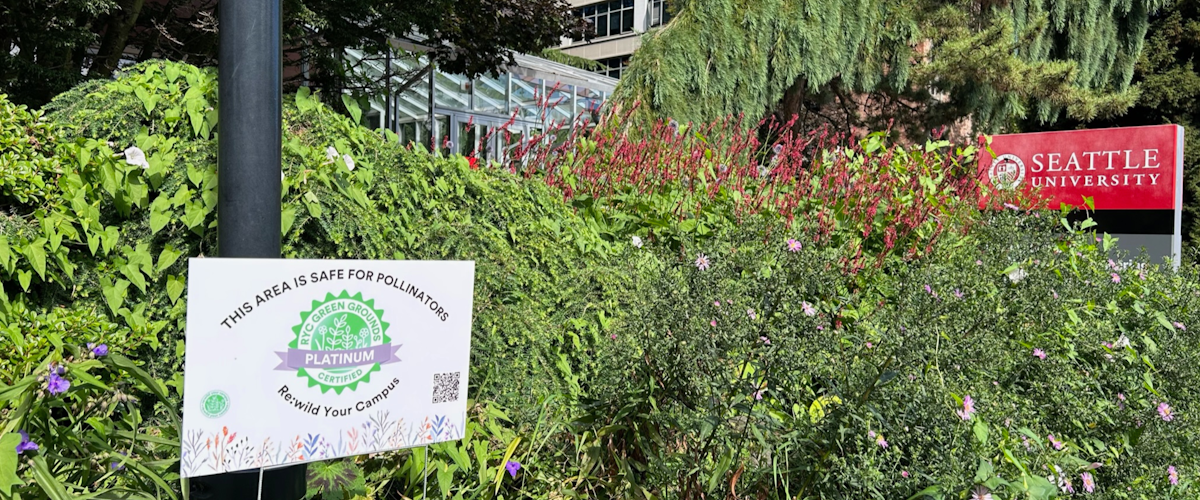
University of Washington Bothell
Point of contact: Tyson Kemper, Grounds Supervisor of University of Washington, Bothell and Cascadia College
Percent of campus managed without synthetic pesticides and fertilizers: 100%
Level of certification: Platinum
What impresses us: Cascadia College and UW Bothell created a Food Forest. With over 30 fruit trees, it is a living laboratory and provides healthy food for the community.
Plan for improvement: Cascadia College and UW Bothell would like to expand their no mow areas to include all of the campus lawns.
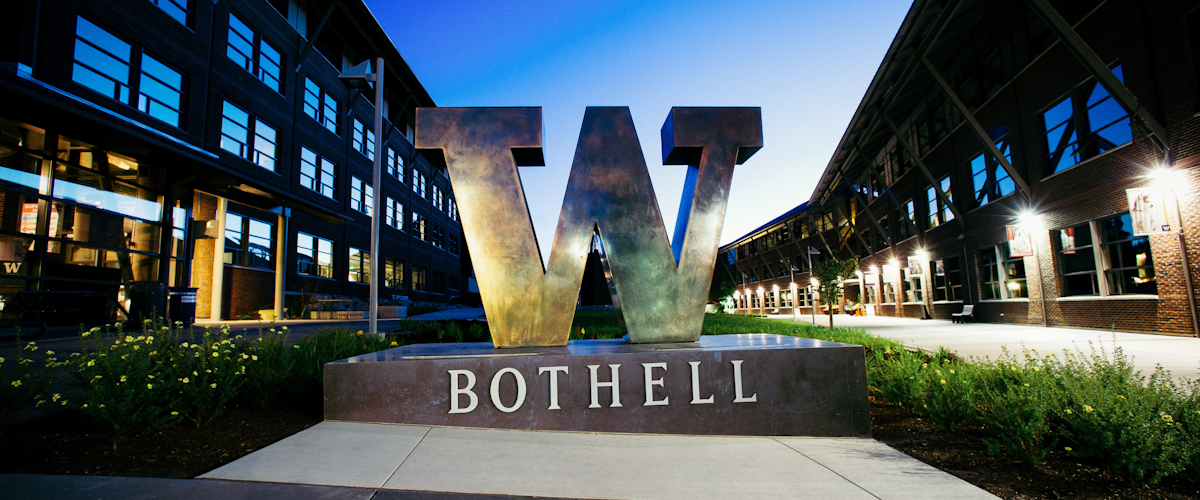
Cascadia College
Point of contact: Tyson Kemper, Grounds Supervisor of University of Washington, Bothell and Cascadia College
Percent of campus managed without synthetic pesticides and fertilizers: 100%
Level of certification: Platinum
What impresses us: Cascadia College and UW Bothell created a Food Forest. With over 30 fruit trees, it is a living laboratory and provides healthy food for the community.
Plan for improvement: Cascadia College and UW Bothell would like to expand their no mow areas to include all of the campus lawns.
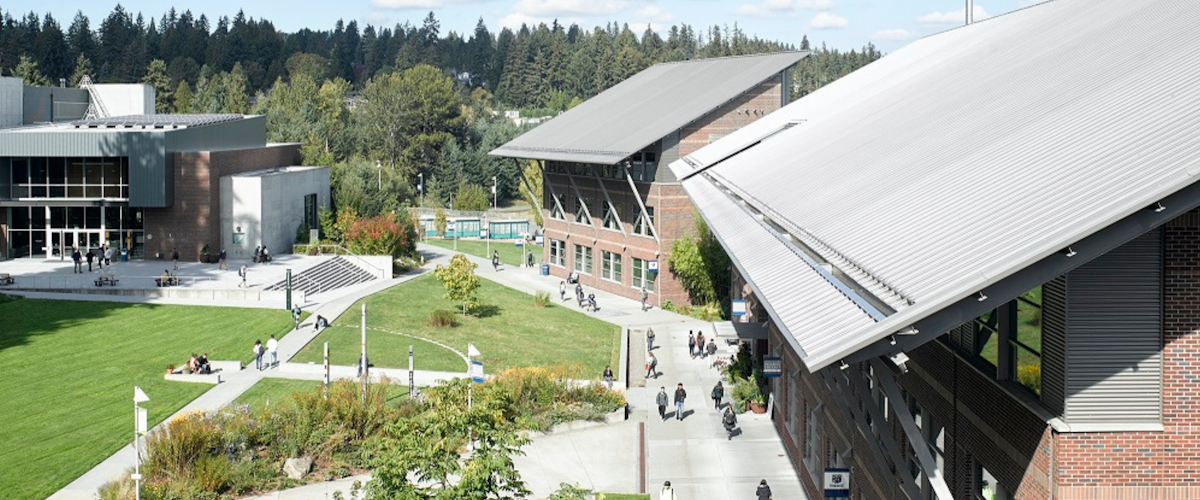
UT Austin Dell Medical School
Point of contact: Justin Hayes, Landscape Supervisor
Percent of campus managed without synthetic pesticides: 100%
Level of certification: Platinum
What impresses us: The Dell Medical School integrates native species into the landscape and uses compost and compost teas to increase soil water retention. The campus has a 27,000 gallon cistern that collects water from their 20,000 sq ft rooftop garden and feeds the sprinkler system.
Plan for improvement: The school is working to increase the presence of native species on campus with a goal of cultivating a campus that has little to no invasive species or non-native plants.
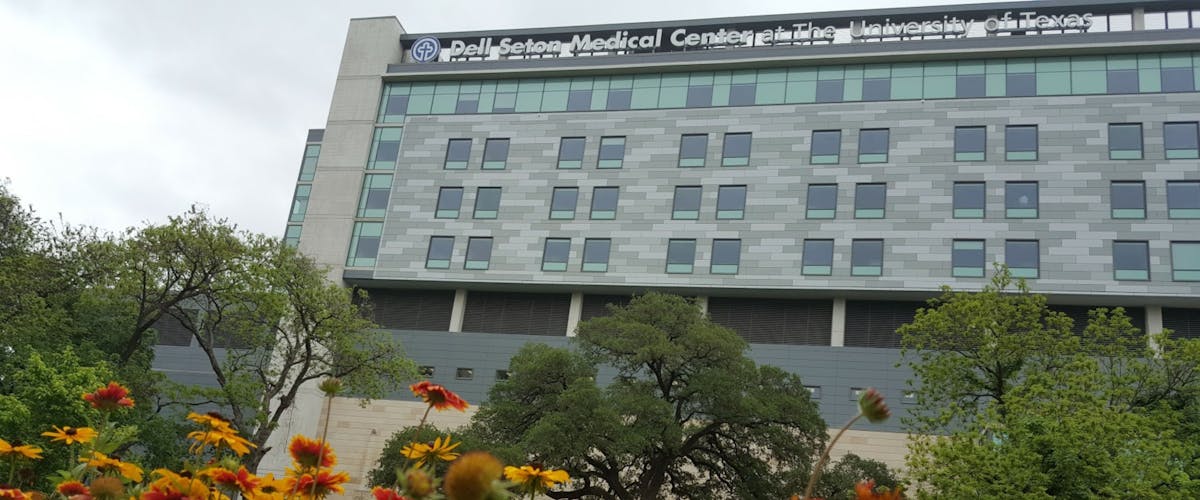
Prescott College
Point of contact: Zachary Czuprynski, Sustainability Coordinator
Percent of campus managed without synthetic pesticides: 100%
Level of certification: Platinum
What impresses us: Prescott College has been pesticide-free for over a decade. Their current landscaping practices do well for preventing pests, such as mulching with their own woodchips, sealing buildings properly, minimizing pest attractants, employing Best-Management Practices for their composting systems, and sealing any water leaks as quickly as possible.
Plan for improvement: Prescott College will continue to strive to keep a "wild" landscape that reflects native species and provides habitat for all critters.

Gold Campuses
Colby College
Point of contact: Maddie LoDico, Director of Sustainability
Percent of campus managed without synthetic pesticides and fertilizers: 99%
Level of certification: Gold
What impresses us: Colby College is intentionally creating low input (both nutrient and labor) landscapes to let nature and wildlife take over.
Plan for improvement: If Colby can get the Rugby field irrigated they have future plans to manage the field organically.
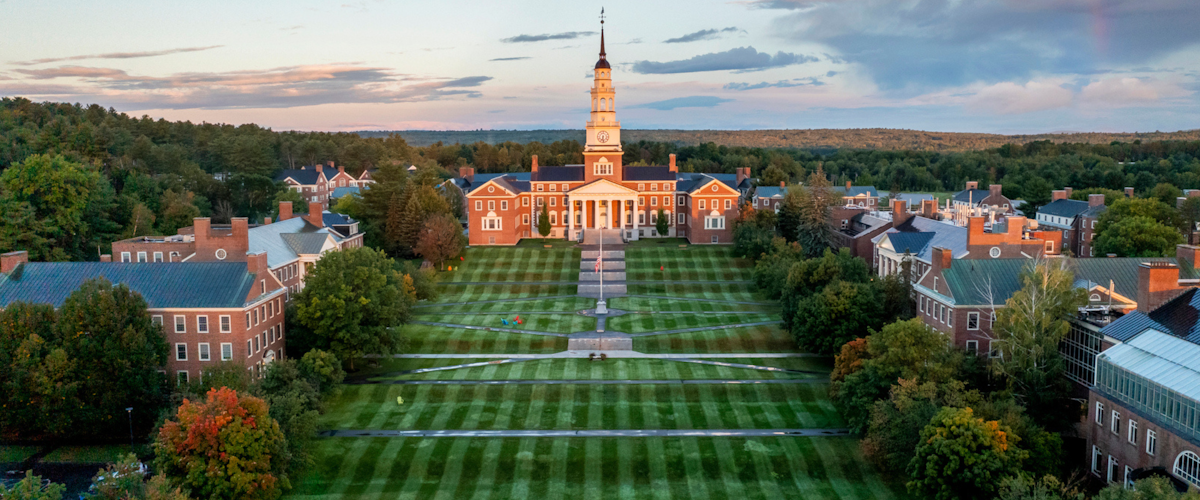
University of Massachusetts Amherst
Point of contact: Pamela Monn, Associate Director of Grounds and Events
Percent of campus managed without synthetic pesticides and fertilizers: 91%
Level of certification: Gold
What impresses us: UMass Amherst is home to over 800 acres of natural lands which are managed without synthetic inputs. The school also grows 80% of what is planted on campus in their greenhouse.
Plan for improvement: UMass Amherst is making a concerted effort to reduce annual plants, which are popular in landscape design, by replacing them with woody, perennial plant material in many of the beds on campus.

University of California Los Angeles
Point of contact: Nurit Katz, Chief Sustainability Officer
Percent of campus managed without synthetic pesticides and fertilizers: 95%
Level of certification: Gold
What impresses us: UCLA began converting turf to native and drought tolerant plants over a decade ago, with recent projects focusing more on native plants aligned with the plant palette in UCLA’s Landscape Plan. In a recent conversion project, over 30,000 square feet of turf has been converted to CA native drought tolerant plants. These projects were completed without the use of any pesticides.
Plan for improvement: UCLA will continue to transition more turf spaces to native plants.

St. Edward's University
Point of contact: Roy Johnson, Arborist & Sustainability Coordinator
Percent of campus managed without synthetic pesticides and fertilizers: 93%
Level of certification: Gold
What impresses us: St. Edward's University is home to 13 acres of dedicated wildflower areas around the campus and has transitioned away from synthetic fertilizer inputs.
Plan for improvement: St. Edward's is continuing to expand native planting areas and is working to eliminate non-native species.

Silver Campuses
Drexel University
Point of contact: Scott Dunham, Director of Grounds
Percent of campus managed without synthetic pesticides and fertilizers: 71%
Level of certification: Silver
What impresses us: Drexel University has stopped using pre-emergent products and has adopted an organic model including the fertilizers we use.
Plan for improvement: Drexel will continue their current plan to soil test, adjust organic fertilizer rates and amendments and aerate/overseed twice per year to promote thicker and healthier turf.

Bronze Campuses
University of Northern Iowa
Point of contact: Jonathan Butler, Assistant Director, Campus Services
Percent of campus managed without synthetic pesticides: 60%
Level of certification: Bronze
What impresses us: University of Northern Iowa is home to many native prairie grass restoration sites that foster local biodiversity.
Plan for improvement: There is a significant desire to pilot a number of different organic management practices on campus with an end goal of implementation on a larger scale, which is why UNI is enrolling in our organic pilot program.
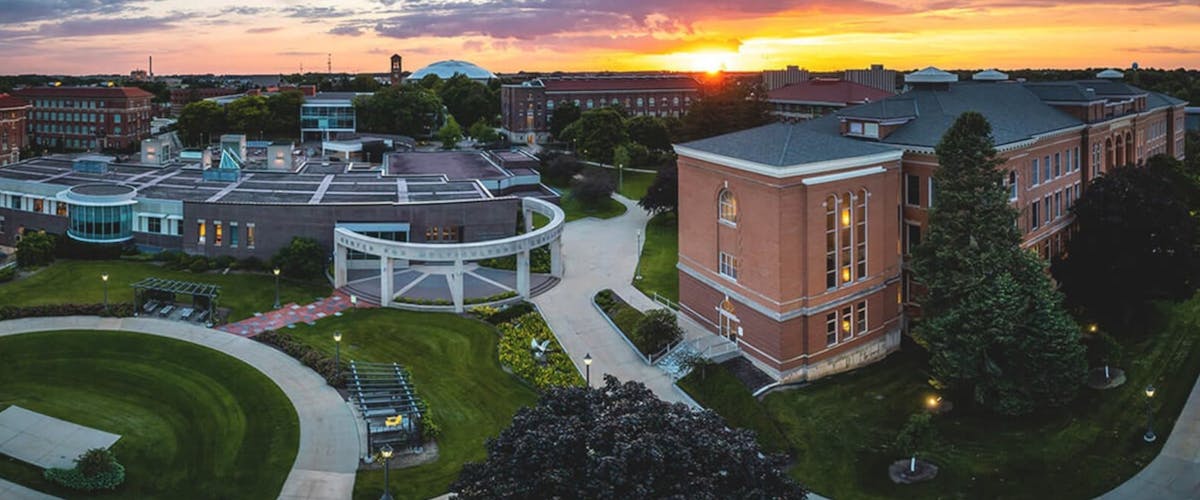
University of Maryland Baltimore County (UMBC)
Point of contact: Claire Runquist, Environmental Sustainability Coordinator
Percent of campus managed without synthetic pesticides: 62%
Level of certification: Bronze
What impresses us: UMBC has established a Landscape Stewardship Committee, which is responsible for reviewing and advising on landscape projects and practices, with a focus on promoting ecological health and eliminating synthetic pesticide use.
Plan for improvement: UMBC's Campus Landscape Master Plan sets out ways that the school will prioritize practices that promote ecological health and eliminate the use of synthetic pesticides, including implementing an IPM program, encouraging biodiversity, promoting healthy soil, using organic fertilizers, and engaging the campus community.
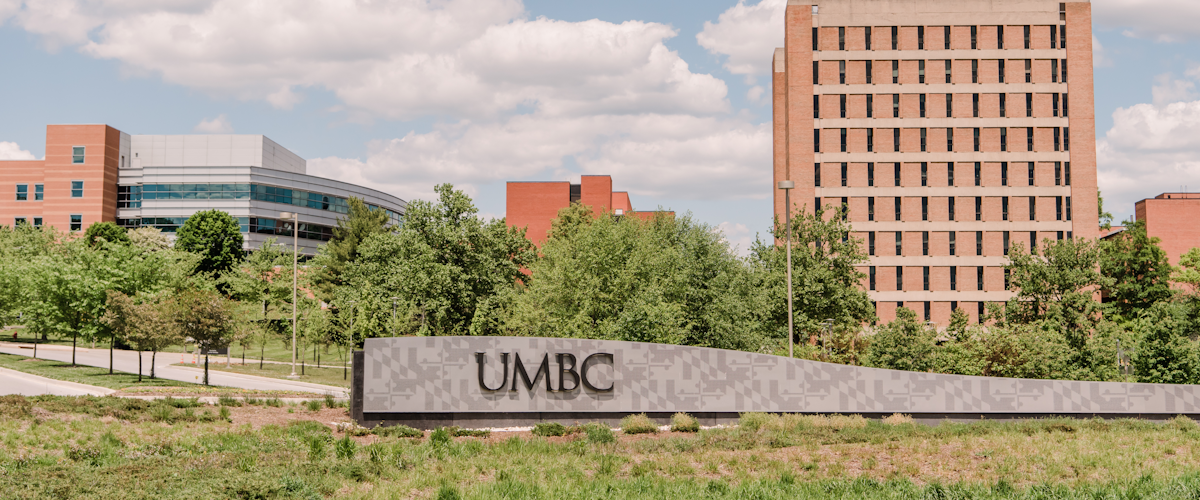
Community & Institutional Campuses
Platinum Campuses
Hungerford Nature Center
Point of contact: Tami Christopher, Executive Director
Percent of campus managed without synthetic pesticides: 100%
Level of certification: Platinum
What impresses us: Hungerford Nature Center is rewilding two lawn spaces into meadows and has let more lawns just grow in. Three years ago they started a pollinator children's garden, and they have replaced traditional grass in their "pond exhibit" with native meadow.
Plan for improvement: Hungerford Nature Center will continue working to gradually remove all non native species and replace with native species.

Amber Waves Farm
Point of contact: Zoe Cronin, Farmer & Public Spaces Manager
Percent of campus managed without synthetic pesticides: 100%
Level of certification: Platinum
What impresses us: Amber Waves Farm is working to plant native species along the fence lines and in the Education Garden. They have also partnered with the Perfect Earth Project to design and install a native pollinator garden at the entrance of our public space.
Plan for improvement: In the public access areas of the farm, Amber Waves Farm is prioritizing planting perennial native plants that will support the health of pollinators, require less irrigation, and less maintenance in the future.

